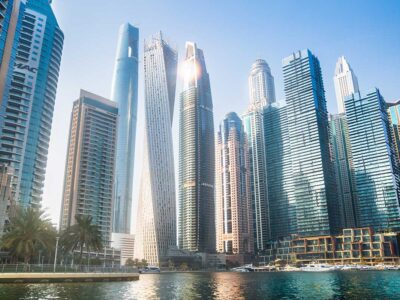Luxury hotel operator Kempinski is delaying a Dubai project by two years, even as it expands elsewhere in the Middle East because authorities have allowed the market to become oversupplied, according to the company’s president for the region.
A 253-room development on Dubai’s palm tree-shaped artificial island will remain a “shell” for the time being, with the opening pushed back until 2013, said Ulrich Eckhardt, the Geneva-based company’s head of the Middle East and Africa.
“I’m concerned about what I consider poor planning from those in a position to approve new hotels,” Eckhardt, 69, said in an interview in Dubai. Building permission was granted without studying “existing inventory, growth rates and future demand,” he said.
Dubai occupancy rates and room prices probably will decline as 30,000 additional hotel rooms are added over the next five years to the current supply of about 50,000, Deloitte estimated in December. The number of visitors would need to rise to about 12 million annually from 9.5 million now to fill the hotels, the auditing company said.
Kempinski plans to open nine properties in the next three years in Abu Dhabi, Bahrain, Saudi Arabia, Oman, Lebanon, Syria and Egypt. The company will open 82 luxury serviced apartments and 10 villas on Palm Jumeirah in June.
“As we open these hotels, we have to create a customer base,” Eckhardt said. “We knew it was impossible to create that with all these other hotels opening at the same time. You would be diverting business, not creating it.”
State-owned developer Nakheel, which built the palm island and a world map-shaped archipelago, said it will restart work on seven postponed projects in various stages of completion after prices fell by more than 60 percent.
Even though many hotel projects are pending across Dubai, Eckhardt says he expects growth to be better managed in the future after developers were chastened by the crash.
“Those who have been dictating this phenomenal growth are no longer there,” he said. “The Nakheels are gone and the real people who actually think about where and how they spend money won’t spend it because they have reasons to think ‘maybe later.’”
Dubai ruler Sheikh Mohammed bin Rashid al-Maktoum’s vision of creating a market through large-scale development was proven right in principle, Eckhardt said. The difficulty was with the execution by property companies.
“They failed to deliver with a coordinated, sustainable action plan and went overboard,” he said. “It wasn’t because Sheikh Mohammed said ‘go until you’re dead.’”
Dubai’s Real Estate Regulatory Agency came into existence too late in 2007 when “most of the damage had been done,” he said. “Can they rectify what was done wrong? I’m not sure, because they would have to tear down a lot of stuff that was built.”
Kempinski, which manages the $1.1bn Emirates Palace, Abu Dhabi’s biggest hotel, will open another one “deep in the desert” in two years, Eckhardt said.
The company was founded in 1897 and operates more than 60 hotels in Europe, Africa the Middle East and Asia, according to its website.
Abu Dhabi will surpass Dubai because its market has more depth and its urban planning process is better, Eckhardt said.
The sheikhdom, which is building branches of the Louvre and Guggenheim museums, will also appeal to travellers who don’t want “the binging that Dubai is known for,” Eckhardt said.
“You will have incredible cultural aspects one day when everything is done,” he said. “I’m not saying that the building of two or three museums will replace Paris or London, but they will certainly surpass what Dubai has to offer.”
Kempinski, which manages 15 hotels in the Middle East and Africa, will open a new one in Bahrain in June. Construction is under way in Al Khobar, Jeddah and Riyadh in Saudi Arabia and Oman’s capital, Muscat. A Cairo hotel will be opened in Giza near the pyramids, Eckhardt said.








